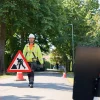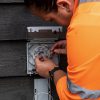BT Preps Technical Trial of UK Mobile Infill Solution for Rural Areas
BTOpenreach has announced plans to conduct a proof of concept trial for its new small cell based Mobile Infill Solution. The service aims to leverage BT’s existing fixed line UK telecoms network to provide mobile services into parts of the country that suffer from “non-existent or patchy” coverage (i.e. “rural areas“).
The new solution, which was first “drafted” last September 2012 (here), aims to use modern small cell technology (i.e. cheap and low-powered radio access nodes that usually have a limited range of several hundred meters) to deploy its service (possibly via either White Space or 4G based wireless connectivity).
Advertisement
At present very little is known about the solution, except that Openreach plan to conduct the two month long trial at BT’s Adastral Park site, which will be commencing in mid to late February 2013 and would require any participating trialist (e.g. Mobile Network Operator) to provide specific equipment and support.
Openreach’s Statement
The purpose of the trial will be to test the technology and delivery requirements of the proposition and Openreach would like to work with a single CP (with their MNO customer) or a single MNO in deployment of the trial site. It is not intended that this trial will involve providing live services to any CP / MNO end users.
Openreach specifically notes that the selected communications provider will need to ensure that their “radio base station equipment” is suitable to fit within a street cabinet, which does give some small indication of how BT plans to operate the service.
It’s interesting to note that this service appears to be targeted at locations that are often similarly underserved by BT’s existing fixed line network, where slower broadband speeds and sometimes even unreliable phone connections can be common. But that situation may not last forever, especially with public funding from the Broadband Delivery UK (BDUK) office now beginning to seep out.
On top of that BT would be foolish not to take a sniff at the government’s £150m Mobile Infrastructure Project, which aims to extend mobile services to “at least 98%” of the United Kingdom by the end of 2017. BT could be playing the long game and in so doing they might also make fixed line broadband coverage more economically viable in rural parts of the country.
Advertisement
Mark is a professional technology writer, IT consultant and computer engineer from Dorset (England), he also founded ISPreview in 1999 and enjoys analysing the latest telecoms and broadband developments. Find me on X (Twitter), Mastodon, Facebook, BlueSky, Threads.net and Linkedin.
« BDUK to Bring Superfast Broadband to 1.8m Extra UK Homes by 2015

















































Comments are closed